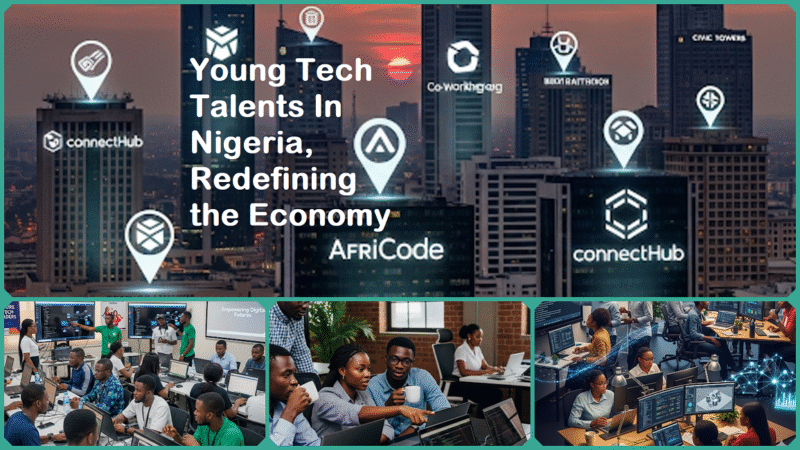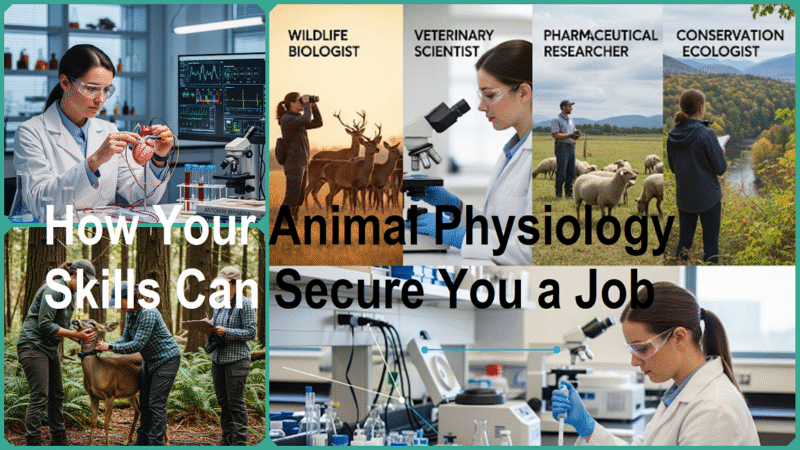Why AI Skills Are Becoming More Important than Your GPA
Estimated reading time: 20 minutes
Artificial intelligence (AI) skills are increasingly becoming a crucial factor in determining career success, frequently taking precedence over traditional academic measures such as GPA in the fast-paced and constantly changing job market of today. This significant shift is transforming the way students, recent graduates, and working professionals plan and navigate their education and career growth, emphasizing the importance of acquiring AI-related expertise to stay competitive and relevant in their fields.
Understanding the growing importance of AI skills in today’s rapidly evolving job market and learning effective ways to develop and enhance these skills can significantly empower you to remain competitive and relevant in the workforce for years to come.
Why AI Skills Are Gaining Ground over GPA
AI skills are rapidly surpassing traditional GPA metrics in importance as employers and various industries increasingly shift their focus toward practical, actionable talents that can drive innovation and effectively solve pressing business challenges. This ongoing transition reflects a broader change in hiring priorities where demonstrated expertise in AI and related technologies is becoming a key differentiator.

Here’s an in-depth look at why this significant change is accelerating at such a fast pace, supported by the latest statistics, emerging trends, and projections for the year 2025:
Transformation Across Industries
AI is rapidly transforming the workplace by automating a wide range of repetitive tasks and simultaneously creating new, sophisticated job functions that require highly advanced technical skills and complex problem-solving capabilities.
Data collected from the first half of 2025 reveals an impressive 25.2% year-over-year increase in job opportunities related to AI, highlighting the growing demand for expertise in this area. Meanwhile, traditional roles that involve manual labor or basic data entry are becoming increasingly vulnerable to automation, posing significant challenges for workers in those fields.
The pace of AI adoption is accelerating notably across various industries, particularly in finance, healthcare, and human resources. More than half (51%) of AI-related job roles are now found outside the traditional technology sector, underscoring the widespread integration of AI technologies into diverse areas of the economy.
Employers Focus on Practical AI Skills
Companies across a wide range of industries are increasingly seeking candidates who possess hands-on expertise in AI tools, machine learning techniques, and advanced data analysis—skills that enable employees to make meaningful contributions from their very first day on the job.
Recent reports from the industry highlight that approximately 60% of employers now prioritize candidates who have AI certifications or verifiable practical experience over those with traditional academic degrees.
Additionally, mentions of university education in AI-related job postings have decreased by about 15% in the past several years. Importantly, practical technical skills such as proficiency in TensorFlow, PyTorch, cloud computing platforms, and data visualization tools are especially valued for their ability to drive immediate business outcomes and support real-world applications.
Real-World Impact
A comprehensive 2025 case study revealed that graduates emerging from AI-focused bootcamps and specialized training programs were twice as likely to successfully secure employment opportunities compared to individuals who depended solely on traditional academic qualifications.
This important finding strongly highlights the significant and undeniable value of gaining practical, hands-on experience as a crucial factor in greatly enhancing job placement prospects, especially within today’s highly competitive and ever-evolving job market.
Practical experience not only builds essential skills but also demonstrates a candidate’s ability to effectively apply knowledge in real-world situations, which employers highly appreciate and seek when making hiring decisions.
Salary Premiums and Market Demand
The return on investment (ROI) for acquiring AI skills is unmistakably clear and compelling. Median annual salaries for professionals specializing in artificial intelligence soared to an impressive $156,998 in the first quarter of 2025, significantly surpassing the earnings typically seen in more traditional job roles and continuing to climb steadily month over month.
Many comprehensive studies now consistently confirm that possessing AI-related skills commands a substantial wage premium, typically ranging between 23% and 30%, with the average salary boost amounting to approximately $18,000 annually for positions that require fluency in AI technologies.
Furthermore, individuals who have developed expertise across multiple AI competencies can achieve even higher salary premiums, reaching up to an extraordinary 43%, highlighting the immense value and demand for advanced AI capabilities in today’s competitive job market.
A Widening AI Skill Gap Means More Opportunity
The exponential rise in AI job postings—more than doubling in early 2025 alone—clearly reflects a significant supply shortfall and an urgent, growing need for specialized talent in the field. Employers across diverse sectors such as manufacturing, retail, and technology are actively expanding their recruitment efforts on a global scale.
They are offering not only higher compensation packages but also accelerating their hiring processes to attract AI-ready professionals. This aggressive approach is critical for companies aiming to maintain and enhance their competitiveness in an increasingly AI-driven marketplace.
Skills-Based Hiring and Credential Trends
Skills-based hiring is replacing traditional degree-first approaches at leading firms. Certifications from Google, Microsoft, or hands-on experience with frameworks like AWS, Azure, and Tableau are increasingly valued—sometimes more than a master’s degree, unless it’s a PhD-level credential.
The Decline of Degree Requirements
The demand for AI skills is significantly reshaping the educational landscape in profound ways. Between 2010 and 2024, the percentage of jobs that require at least one AI-related skill has grown dramatically, showing a remarkable upward trend across various industries.
Notably, the fastest growth in AI skill requirements has been observed in jobs that require only an associate degree or a high school diploma, highlighting the increasing importance of AI knowledge even in roles that do not demand advanced degrees.
Additionally, employment in STEM fields as a proportion of all jobs has surged by more than 50%, reflecting a massive and ongoing realignment of workforce needs toward greater technical expertise and digital proficiency across the board.
Rapid Diversification of AI Careers
Roles such as machine learning engineer, AI product manager, computer vision engineer, prompt engineer, ethical AI specialist, and AI risk analyst are rapidly emerging as some of the most sought-after positions in the technology sector.
These roles are commanding the highest salaries and most competitive pay packages in the current job market. Leading companies like Meta and Google are offering multimillion-dollar compensation packages to attract and retain elite AI experts, which further highlights the immense value and premium placed on professionals with high-impact skills and deep expertise in artificial intelligence.
This trend reflects an increasingly widespread recognition of the critical role that AI talent plays in driving innovation forward and maintaining a strong competitive advantage in today’s rapidly evolving market.
GPA vs. AI Skills in the 2025 Job Market
| Factor | GPA | AI Skills |
|---|---|---|
| Focus | Theoretical academic achievement | Practical, job-ready skills |
| Employment Preference | Initial screening, often diminishing | Central to hiring and advancement decisions |
| Salary Impact | Typically none | Premium of 23-43% over standard roles |
| Career Growth | Limited to entry-level opportunities | Access to emerging, higher-paying positions |
| Sector Relevance | Most valued in academia | Critical across tech and non-tech industries |
| Time-on-Hire | Longer, credential-dependent | 20% faster with AI certifications/skills |
| Adaptability | Static measure | Signals future-readiness and flexibility |
AI skills directly address the practical, real-world needs of today’s employers by empowering individuals to innovate, streamline operations, and significantly grow businesses across various sectors. This skills-focused approach offers clear and tangible financial advantages, wider industry relevance, and accelerates career advancement much more effectively than relying solely on traditional academic achievements.
Actively pursuing AI expertise has become one of the most reliable and strategic ways to future-proof your career, ensuring you remain competitive and stand out prominently in today’s increasingly challenging and competitive job markets.
How AI Skills Empower Your Career
AI skills are rapidly becoming not just beneficial but essential for career empowerment across a wide range of industries and professions in today’s fast-evolving job market. Understanding and mastering AI technologies can significantly boost your career prospects, enhance your job performance, and open up new opportunities for advancement.
Here’s an overview of how developing proficiency in AI can positively impact your professional life, along with practical, actionable steps you can take to cultivate and strengthen these valuable skills:
- Direct Problem-Solving Abilities: AI tools assist you in thoroughly analyzing vast and complex datasets, optimizing various workflows, and accurately identifying emerging trends that might otherwise go unnoticed. This comprehensive support enables you to develop and deliver innovative, well-informed solutions that significantly improve operational efficiency and effectively drive strategic growth within your organization over the long term.
- Lifelong Learning and Adaptability: The field of AI is rapidly evolving and constantly changing, which strongly encourages ongoing, continuous learning and fosters creative problem-solving skills. By gaining expertise in AI technologies, you cultivate a growth mindset that is essential for maintaining relevance and competitiveness in today’s fast-paced, technology-driven workplace environment. This commitment to lifelong learning helps you to adapt quickly to new advancements and emerging trends in the industry.
- Signaling Proactiveness to Employers: Demonstrating that you possess AI skills indicates that you are a forward-thinking individual who is well-prepared for the evolving future of work. Employers place a high value on candidates who take the initiative to proactively acquire new skills and continuously upskill themselves to effectively meet the rapidly changing demands of the modern workplace. This proactive approach showcases your commitment to staying relevant and adaptable in a competitive job market.
Building Your AI Skill Set: The How
Discover practical and effective methods to develop the essential AI skills that employers highly value. Explore a variety of options, including comprehensive online courses and recognized certifications, as well as engaging in hands-on projects and gaining real-world experience through internships.
These opportunities will equip you with the knowledge and expertise needed to stand out in the competitive job market.
Start with Foundational Knowledge
- Explore fundamental AI concepts, including machine learning, natural language processing (NLP), data science, and AI ethics in greater depth. Gain a comprehensive understanding of how machine learning enables systems to learn from data and improve over time without being explicitly programmed. Delve into natural language processing, which allows computers to interpret, understand, and respond to human language in a meaningful way. Discover the role of data science in collecting, analyzing, and deriving insights from vast amounts of data that fuel AI models. Finally, examine the critical importance of AI ethics, addressing the moral implications, fairness, transparency, and responsibility involved in developing and deploying artificial intelligence technologies.
- Resources such as BSD Education emphasize that having strong skills in areas like Natural Language Processing (NLP), Machine Learning Operations (MLOps), AI ethics, and computer vision will be incredibly valuable and in high demand by the year 2025. These specialized skills are expected to play a crucial role in shaping the future of technology and innovation.
Engage in Hands-on Learning
- Gaining practical experience by participating in internships, engaging actively in hackathons, or working on real-world projects is essential. These hands-on opportunities provide invaluable insights and skills that theoretical knowledge alone cannot offer. They allow individuals to apply concepts in real situations, solve actual problems, and build a strong foundation for future professional success.
- Programming languages such as Python, in combination with powerful AI frameworks like TensorFlow and PyTorch, are widely utilized in the field of artificial intelligence development. These tools provide developers with the necessary resources and flexibility to create sophisticated AI models and applications efficiently and effectively.
- Platforms such as Multiverse provide comprehensive apprenticeships that allow you to acquire valuable real-world experience in artificial intelligence. These opportunities equip you with practical skills and knowledge that are directly relevant and highly applicable to various job roles within the AI industry.
Leverage Online Learning Platforms
- Coursera, edX, Alison, and LinkedIn Learning offer a wide variety of tailored courses and professional certifications, all designed in collaboration with some of the most prominent and respected tech companies in the industry, including IBM, Google, and Microsoft. These platforms provide learners with the opportunity to gain specialized knowledge and skills that are highly relevant to current technology trends and demands.
- These courses encompass a wide range of broad and advanced artificial intelligence topics that are designed to be accessible and understandable for both beginners who are just starting and experienced professionals who are looking to deepen their knowledge and skills in the field.
Focus on Practical Application
- Go beyond simply grasping theoretical concepts by actively engaging in the creation of AI-powered solutions that are specifically designed to effectively address real-world business challenges, delivering tangible and measurable results that make a significant impact.
- Making meaningful contributions to open-source AI projects, developing innovative AI-powered products, or automating complex tasks can significantly showcase your technical skills and problem-solving abilities to potential future employers. These activities highlight your practical experience and commitment to advancing AI technology in real-world applications.
Top AI Skills to Focus On
Explore the most sought-after and in-demand AI skills in today’s rapidly evolving job market, ranging from machine learning and natural language processing to data science and advanced deep learning techniques.
We will guide you through identifying the precise areas of expertise that can significantly enhance your professional profile and give you a strong competitive edge in securing top AI-related positions.
- Natural Language Processing (NLP) is a fascinating field that enables machines to understand, interpret, and respond to human language in a meaningful way. This technology powers a wide range of applications, such as chatbots that can engage in conversations, voice assistants that respond to spoken commands, and sophisticated language translation services that bridge communication gaps across different languages. By allowing machines to process and analyze natural language, NLP plays a crucial role in making human-computer interactions more intuitive and effective.
- Machine Learning Operations (MLOps) involves the deployment and continuous management of artificial intelligence models within production environments, effectively transforming conceptual ideas into scalable, reliable, and efficient solutions. This process ensures that AI models are not only developed but also maintained and optimized over time to meet real-world business needs.
- AI Ethics and Governance: Ensuring that AI applications are developed and deployed in ways that are fair, transparent, and socially responsible is becoming an increasingly critical and essential area. This field focuses on addressing ethical concerns, promoting accountability, and ensuring that AI technologies benefit society as a whole.
- Computer Vision: Developing advanced systems that can accurately interpret and analyze visual data from the world around us, significantly transforming a wide range of industries, including healthcare, autonomous vehicles, manufacturing, and security. This technology enables machines to understand images and videos in ways that were previously only possible for humans, driving innovation and efficiency in various critical sectors.
- Robotic Process Automation (RPA) involves the use of advanced AI-driven automation technologies to streamline and optimize repetitive and routine tasks, significantly enhancing overall business efficiency and productivity. By leveraging intelligent robots and software bots, organizations can minimize manual effort, reduce errors, and accelerate workflow processes, leading to improved operational performance and cost savings.
Career Impact of AI Skills
Discover how acquiring AI skills can significantly boost your career trajectory, from securing higher-paying jobs and increasing your value to future-proofing your role against automation and opening doors to new opportunities.
- Broad Industry Applicability: AI skills are not confined solely to the technology sector. They are becoming progressively essential and highly valuable across a wide range of industries, including healthcare, finance, marketing, logistics, and many other fields. This growing importance highlights the versatility and expanding influence of AI expertise in diverse professional areas.
- Higher Earning Potential: Professionals who possess expertise in artificial intelligence typically command premium salaries that are often significantly higher compared to their peers who do not have these specialized skills. This increased earning potential reflects the high demand for AI knowledge across various industries and the value companies place on individuals who can leverage AI to drive innovation and efficiency.
- Faster Career Advancement: Having demonstrable AI capabilities can significantly accelerate the processes of hiring and promotions within organizations. These skills also empower individuals to successfully transition into emerging roles that are shaping and defining the future landscape of work, opening up new and exciting career opportunities.
Building AI skills is no longer optional but essential. Whether you’re a student, recent graduate, or seasoned professional, investing in AI knowledge empowers your career by providing practical problem-solving tools, adaptability, and a competitive edge that GPA alone cannot offer.
Begin with small, manageable steps, maintain consistent effort over time, and make the most of the wide range of resources available to you to effectively transform your career path and develop valuable AI expertise.
Current Trends in AI and the Workforce
Current trends in artificial intelligence and the workforce reveal a profound and sweeping transformation that is fundamentally reshaping the way businesses operate across a wide range of industries and sectors, driving innovation and efficiency like never before:
AI Revolutionizing Multiple Sectors
AI is making remarkable and significant inroads into a wide variety of fields, including SEO, content marketing, healthcare, cybersecurity, finance, insurance, and legal services. Many firms now actively use AI to analyze consumer behavior in greater depth, automate the creation of content more efficiently, optimize complex supply chains, enhance the accuracy of medical diagnostics, and secure systems against constantly evolving cyber threats.
Even non-profits and mission-driven organizations have seen a substantial increase in AI-related job postings, rising by more than 50% recently, which demonstrates the technology’s broad and expanding adoption well beyond just traditional technology sectors.
Productivity Gains and Employee Upskilling
Companies that are actively integrating artificial intelligence technologies into their operations anticipate significant improvements in overall productivity and efficiency. This optimistic outlook is fueling massive and widespread investments in building robust infrastructure as well as comprehensive employee upskilling programs.
These training initiatives are specifically focused on enhancing AI fluency, advancing skills in natural language processing (NLP), deepening expertise in data analytics, and fostering a strong understanding of AI ethics. Leading businesses today recognize that workforce agility is critical for success, strategically orchestrating a seamless blend of both human and digital talent to effectively thrive and remain competitive in the rapidly evolving AI-driven era.
Growth of Ethical AI Roles
As AI tools continue to rapidly expand and become more integrated into various industries, ethical considerations are becoming increasingly crucial and cannot be overlooked. New professional roles are emerging to address these concerns, including AI ethics leads, trust and safety specialists, and responsible AI product managers.
These positions are specifically designed to oversee the fair, transparent, and accountable deployment of AI technologies. This development represents a unique blend of technical expertise combined with strong moral judgment and regulatory compliance, clearly illustrating the complex and multifaceted impact that AI has on modern workplaces and organizational cultures.
AI Automates Traditionally Manual Tasks at Scale
AI-driven automation is steadily transforming the workforce by replacing routine, repetitive jobs, but at the same time, it is generating new opportunities through the creation of more complex and specialized roles.
This technological evolution is fundamentally redefining knowledge work across various fields — including legal research, document processing, and customer service — by automating time-consuming tasks such as data entry and administrative duties.
As a result, human workers are increasingly able to concentrate their efforts on higher-value, strategic activities that require critical thinking and creativity, thereby enhancing overall productivity and job satisfaction.
AI Hiring Expands Across Industries
AI recruiting has expanded significantly beyond the confines of Silicon Valley, now making a substantial impact across various industries, including finance, insurance, marketing, and healthcare. The demand for specialized AI job roles has grown, with top positions including AI engineers, prompt engineers, data analysts, research scientists, and AI ethics leads becoming increasingly sought after.
Interestingly, although technology sectors continue to grow their AI headcount at a rapid pace, other industries such as education and pharmaceuticals exhibit a much slower rate of AI adoption. This slower uptake is largely attributed to challenges related to infrastructure limitations and stringent regulatory barriers that these sectors face.
Business Leadership Adapting to AI Workforce Shifts
Executives are strongly encouraged to strategically align their talent management approaches with the rapidly evolving advancements in artificial intelligence by carefully mapping out new hybrid roles that combine human skills with AI capabilities.
They should also conduct thorough audits of their workforce’s readiness to effectively work alongside AI technologies, closely monitor emerging hiring trends related to AI expertise, and prioritize investments in scalable, secure AI infrastructure that can support ongoing growth and innovation.
Organizations that proactively embrace this comprehensive realignment of talent and technology consistently report significantly improved employee performance, increased levels of innovation, and greater long-term organizational resilience in the face of changing market demands.
AI Tools Reshaping Digital Content and Marketing
AI technologies are dramatically transforming the fields of SEO and digital marketing by automating critical tasks such as keyword research, content optimization, and in-depth audience analysis. These advanced AI tools are capable of generating high-quality content and utilizing predictive analytics, which empower marketers to design and tailor their campaigns with far greater precision and effectiveness. As a result, businesses can respond to changing market trends and consumer behavior much more quickly and efficiently than ever before.
In Summary
AI is transitioning from an experimental technology to a core business enabler across industries. The workforce of 2025 is marked by a dynamic integration of human-AI collaboration, substantial upskilling, ethical oversight, and strategic workforce planning to leverage AI’s full potential while safeguarding human-centric values.
This ongoing and rapidly evolving transformation presents vast and exciting opportunities for professionals who are willing to adapt, grow, and learn new AI-related skills. At the same time, it challenges traditional workforce models to evolve into structures that are more agile, significantly more productive, and deeply informed by ethical considerations, ensuring responsible and sustainable development.
FAQs
Why are AI skills more valuable than traditional academic grades?
AI skills demonstrate practical capabilities to solve evolving business problems and adapt to rapid technological changes, whereas GPA mainly reflects academic performance without directly indicating job readiness. Research from the Oxford Internet Institute shows that AI skills can increase earning potential by up to 40% and are increasingly prioritized by employers over academic credentials.
How can college students start developing AI skills?
Students can begin by taking beginner-friendly AI courses in machine learning, data science, and natural language processing offered by platforms like Coursera and edX. Participating in internships, hackathons, and working on real-world AI projects builds hands-on experience, which is highly valued by employers.
Will AI replace all jobs, making skills irrelevant?
AI will automate routine and repetitive tasks, but is expected to augment rather than replace most jobs. New roles requiring creativity, oversight, and collaboration with AI systems will emerge, making upskilling critical for remaining relevant and competitive in the workforce.
Do I need a technical background to learn AI skills?
Foundational AI courses are designed for beginners and accessible to those without a technical background. Many programs offer step-by-step learning paths, allowing diverse learners to progressively build expertise in AI concepts and tools.
How do AI skills influence salary and job opportunities?
Professionals with AI skills often earn significantly higher salaries—up to 30-40% more than peers without these skills—and have access to a wider range of in-demand roles. AI fluency is increasingly a differentiator in hiring and promotions across numerous industries.
In Conclusion
The increasing importance of AI skills compared to traditional academic achievements, such as GPA, represents a profound shift in the expectations of today’s workforce. As technology continues to reshape industries and redefine job roles, having practical AI expertise is becoming essential for anyone aiming to remain competitive and relevant in their career.
For students and recent graduates, this means looking beyond grades and focusing on building hands-on AI capabilities through courses, projects, and internships. For mid-career professionals and those considering a career change, acquiring AI skills opens doors to new opportunities and ensures adaptability in a rapidly evolving job market.
Ultimately, investing in AI learning is not just a strategic career move—it is a necessity. Those who start early, remain curious, and actively seek practical experience will be best positioned to thrive and lead in an AI-driven future. By embracing this new paradigm, you future-proof your career, empower innovation, and unlock your full potential in the digital era.
Discover more from Skill to Grow
Subscribe to get the latest posts sent to your email.






